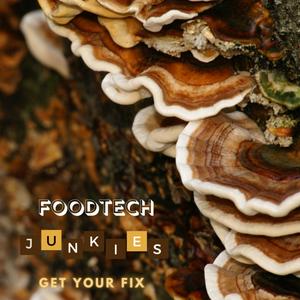In this episode of FoodTech Junkies, host Sharon Cittone sits down with Marjolein Brasz, CEO of Foodvalley NL, to unpack what it really takes to move food innovation from ideas to impact.
The conversation goes beyond startups and technologies to examine the structural challenges shaping today’s food system, from fragmented value chains and misaligned incentives to consumer disconnect and policy gaps. Marjolein shares her journey from traditional industries into food system transformation, and explains why startups alone cannot drive change without collaboration across farmers, corporates, policymakers, investors, and consumers.
Together, they explore how ecosystem thinking enables more resilient food production and consumption, the role of upcycling and circular practices, and why building markets, not just solutions, is essential. The episode also dives into the importance of cohesive policies, shared infrastructure, and incentives that support healthier diets, lower emissions, and economic viability across the value chain.
This is a candid, systems-level discussion on how we stop working in silos and start building food systems that are resilient, equitable, and fit for the future.
About Marjolein Brasz
Marjolein Brasz, CEO of Foodvalley, attributes her dynamic career progression to her ability and willingness to embrace discomfort and challenge the norm. After graduating from Erasmus University Rotterdam with a business degree, she ventured into the energy sector, working in traditional oil and gas before transitioning to renewable energy and sustainable materials. Her work experience spans various countries, and her global perspective enhances her ability to adapt and innovate in diverse contexts.
Marjolein’s previous roles taught her about systemic work—the idea that changing existing systems requires simultaneous progress in demand and supply. This involves recognizing change agents, fostering entrepreneurship, and navigating non-linear paths. These insights are now at the core of her leadership at Foodvalley, where she drives mission-oriented innovation for a sustainable food system.
Episode Timestamps
00:00 Introduction to food innovation and systemic change
00:45 Meet Marjolein Brasz: from traditional industries to Foodvalley NL
01:44 The core challenges facing today’s food system
03:53 Why systemic change requires collaboration across sectors
18:48 Consumer awareness, demand, and market dynamics
28:16 Upcycling, circularity, and sustainable practices
30:09 Building consortia to enable food system transition
31:35 Investing in long-term, systemic change
32:01 What startups need from ecosystems to succeed
33:33 Aligning corporate and farmer interests
36:35 The role of policy and incentives
39:18 Reconnecting people with food through education
41:11 Global perspectives on food system transformation
44:16 How big companies can drive meaningful change
50:13 Lightning round: personal insights and reflections
59:17 Final thoughts and future directions


